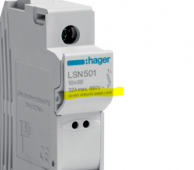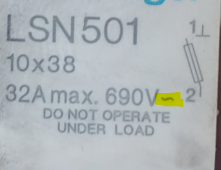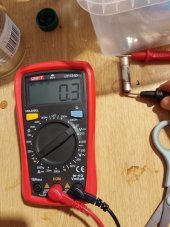BradCagle
Solar Enthusiast
- Joined
- Aug 27, 2021
- Messages
- 578
Hi All!
So I'm kinda new , I have 8 panels 320V ( 3.1kw ) in series open circuit voltage and a AIO 3.6kw inverter.
So I got these DC fuses to install between the panels and the inverter.
I checked with the multimeter that the polarity was good and when I closed both + - circuit fuses I was reading 0v and then when I tried again one of the caught fire!
I read about the current flow that it has to enter in a specific way for DC breakers but mine is just a fuse and it doesnt mention current flow diagram ? Or I don't understand.
Should have I connected the panels on top of the fuse ? Or is something else is happening ?
I tried to turn on the inverter with just battery and it works fine it seems. Is there any possibility I have destroyed something in the panels or the inverter ?
Thank you!
Edit : The housing is made in france and the fuse made in italy. Shall I get a circuit switch breaker instead of fuse ? Im going to the shop again to buy new
View attachment 114362View attachment 114361
I tried fuses, and housing similar to what you have. Mine got scary hot, and when I started smelling plastic melting I shut it down.
I switched to midnight breakers. I wont do the fuses ever again.





